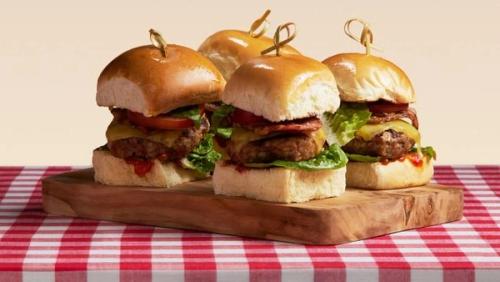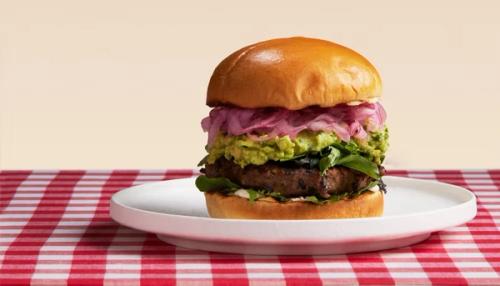Learn
Nutrition Fast Food vs Homemade – which burgers are healthier?Fast Food vs Homemade – which burgers are healthier?
Who doesn’t love a juicy, delicious burger, but how does a home-made burger stack up nutritionally against a fast-food meal combo? Our Nutrition Team look at some research on takeaway combo meals and compares this to a home-cooked Kiwi burger.


How do we eat healthier? If you ask a Registered Dietitian or Nutritionist, they would most likely say ‘just get in the kitchen and cook’. Most things cooked from scratch at home are likely to be healthier than meals purchased pre-made or from a takeaway outlet. But what about family favourites, such as burgers? Is a homemade version really any healthier than one purchased from a fast-food chain?
Research from The University of Auckland’s School of Population Health looked into serving sizes and nutritional information of takeaway combos from 20 fast-food chains (which is often the way we eat fast food, with optional fries, soft drinks, and maybe a dessert). They compared kilojoules (calories), sugar, sodium (salt) and saturated fat of the meal combos with daily maximum recommended intakes*.
Given that a combo meal is just one of three meals a person might eat in a day, there were no surprises to find half the combos examined provided a median of 46% of an adult’s daily energy requirements, 89% of their daily maximum recommended sodium intake, 81% of the maximum recommended added sugar and 46% of their maximum intake of saturated fat.
One of the least healthy combos (a double burger, dessert, fries and a sugary soft drink) included 16 teaspoons of sugar, along with more calories than an average person needs for an entire day, with a similar excess of salt.
When we make a burger at home we often eat just the burger alone; it’s satisfying and delicious enough so that extras such as fries, fizzy drinks and sugar-laden desserts aren’t necessary. At home, those enticing combo deals, or a server saying ‘do you want fries with that?’ are not there to tempt us to spend extra $$$ for food we don’t really need. So, let’s examine what one home-made burger can provide in terms of energy, sodium, sugar and saturated fat.
We’ve analysed one of our favourites, the
To reduce the amount of calories and saturated fat in a burger even further, choose a lean mince, fry with a little olive or vegetable oil, and use a moderate amount of cheese.
It goes without saying that a burger will only be as healthy as the ingredients going into it, the way it’s cooked, and the sides you choose to eat with it. A burger laden with large amounts of cheese or a fatty meat patty, high fat and/or sugary sauces, along with little in the way of vegetables will not stack up as well.
If you do eat fast-food combo’s regularly, choose smaller portions, skip the dessert, and choose a low-sugar drink, and you’ll see the benefit for your wallet as well as your body.
Burger Thursday gives you the excuse to try some delicious burger recipes at home and we know you’ll enjoy these healthier options:
- Lamb Burger with Hummus, Courgette Ribbons and Roasted Carrots
- Korean-Style Burger
- Lamb Burger with Garlic Mint Sauce
*Recommended Energy Intake for an adult is 8700kJ (2079kcal)) per day and this study used maximum recommended daily intakes of sodium, saturated fat and sugar as 2000mg, 23g and 51g respectively.



Posted by Beef + Lamb New Zealand








